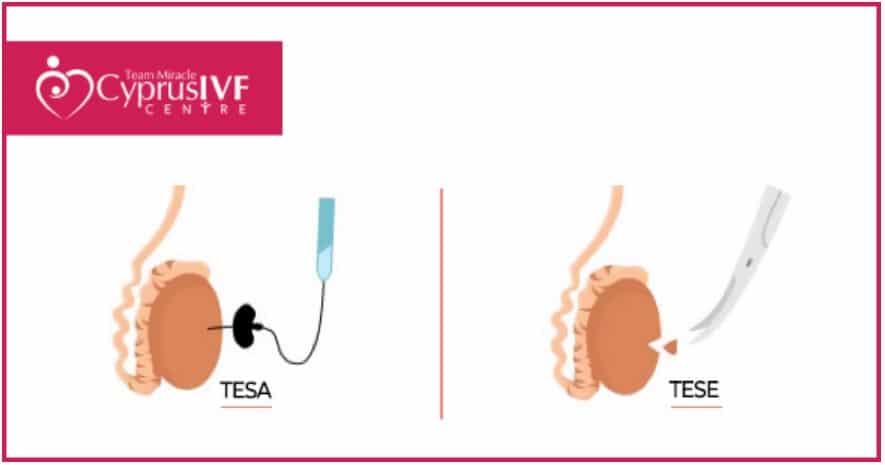
In some cases, a man’s testes produce sperm, but his semen doesn’t contain any. Advances in
medical techniques have enabled men even with this condition to possess children of their own.
Surgical sperm retrieval is typically a specialized technique employed in an IVF cycle. In such cases,
the sperm is harvested directly from the testicles.
Many azoospermic patients with non-obstructive azoospermia (NOA) could be candidates for sperm
aspiration as a part of their in vitro fertilization procedure. Because sperm may be present in some but
not all parts of the testes of such men, multiple samplings of the testicular tissue are usually
performed to extend the probability of finding sperm in NOA patients.
At Cyprus IVF Centre, our doctors can perform two different methods of sperm harvesting with
Non-obstructive azoospermia;
1) TESE (testicular sperm extraction), which is a surgical biopsy of the testis to pinpoint the tissue
to be removed. high-power operating microscope is used for tubules that are swollen and may contain
sperm.
2) TESA (testicular sperm aspiration), which is performed by sticking a needle within the testis and
aspirating fluid and tissue with.
How is Micro-TESE performed?
Micro TESE uses advanced optical magnification to scan tubules that may contain sperm. Tubules
with sperm are first identified and then a tissue sample is extracted from the testicles. The testis will
next be closed with a short operation to halt any bleeding.
We’ll do the same thing with the second testicle. We close all the layers of tissue that we opened in
order to enter your scrotum after collecting tissue samples. You’ll have a suture that dissolves on its
own over time and leaves little or no scars. Your tissue sample will then be sent to our medical
technicians, who will analyze it under a standard microscope to check if it contains any sperm.
This aims to cause less damage to the structure inside the testicle, and to therefore have fewer after
effects like blood supply problems caused by tiny blood vessels being cut.
70% of sperm production problems are resolved using these methods. However there are genetic
factors that will cause problems when trying to search out healthy sperm cells.
Some of the advantages of Micro TESE over TESE includes:
● Higher sperm retrieval rates
● Reduced acute post-operative complications
● Fewer chronic changes to testicular function
● Fewer complication seen on ultrasound
